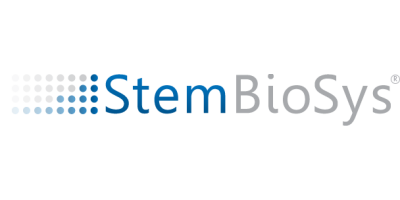

- Home
- Companies
- StemBioSys, Inc.
- News
- StemBioSys and Cartox Announce ...
StemBioSys and Cartox Announce Publication of Research Demonstrating CELLvo™ Matrix Plus Significantly Enhances the Functionality of hiPSC Cardiomyocytes
StemBioSys, Inc. (StemBioSys) and CarTox, Inc. (Cartox) announced today the publication of research in Nature Scientific Reports demonstrating that CELLvo™ Matrix Plus, an extracellular matrix (ECM) technology derived from human perinatal stem cells, supports rapid functional and structural maturation of human induced pluripotent stem cell derived cardiomyocytes (hiPSC-CMs) in culture and enables high throughput cardiotoxicity screening using mature human cardiomyocytes.
The paper, entitled "Human perinatal stem cell derived extracellular matrix enables rapid maturation of hiPSC-CM structural and functional phenotypes," was performed under the stewardship of Todd Herron, Ph.D., of the University of Michigan and a founder of Cartox, and Travis Block, Ph.D., the Chief Technology Officer of StemBioSys. The research investigated Matrix Plus alongside conventional approaches to hiPSC-CM culture, including the commonly used Matrigel ECM, to determine the efficiency, reproducibility and functionality of the technology. As detailed in the paper, the data indicate that Matrix Plus enables hiPSC-CM maturation in seven (7) days compared to current approaches that deliver partial hiPSC-CM maturation within 30 to 100 days. Furthermore, Matrix Plus promoted mature hiPSC-CM electrophysiological function and enabled the in vitro visualization of reentrant arrhythmia responsible for fatal cardiac events in humans. Lastly, and importantly, Matrix Plus enabled high throughput cardiotoxicity screening using mature human cardiomyocytes with validation utilizing reference compounds recommended for the evolving Comprehensive In Vitro Proarrhythmia Assay (CiPA) coordinated by the Health and Environmental Sciences Institute (HESI).
"The study published in Nature Scientific Reports is a watershed moment in the advancement of in vitro cardiotoxicity screening using human cardiomyocytes," said Bob Hutchens, StemBioSys President and CEO. "While hiPSC-CMs offer promise in pre-clinical drug discovery, the technology`s adoption has thus far been hindered by hiPSC-CM immaturity and inconsistencies in cell production and functionality. The research by Drs. Herron and Block conclusively demonstrates that Matrix Plus promotes efficient development of highly functional, biologically-relevant hiPSC-CMs, while enabling a testing environment for human cardiomyocytes that results in experiments with higher verisimilitude that can successfully predict the cardiac safety of drugs in the early development stage."
Over the last two years, StemBioSys and Cartox have been working together on an important application of StemBioSys`s unique human-derived CELLvo ECM technology, branded as CELLvo Matrix Plus. The paper published in Nature Scientific Reports was borne out of research conducted by Dr. Herron and his team in the Frankel Cardiovascular Regeneration Core Laboratory. StemBioSys supported this work by developing and characterizing unique formats of the CELLvo Matrix Plus for use in Dr. Herron`s work. The paper highlights several important aspects of the technology including the unique nature of the matrix used to complete these studies and confirmation of the nature of the cells when placed on this matrix. Most important, the paper demonstrates that using a set of validation drugs specified by the U.S. Food and Drug Administration (FDA), the CELLvo Matrix Plus technology is an accurate predictor of a drug`s potential to cause cardiac toxicity. Many of paper`s findings have been separately confirmed by StemBioSys` commercial partners, several of whom have validation studies underway.
Todd Herron, President and CEO of Cartox and Director of the Frankel Cardiovascular Regeneration Core at the University of Michigan stated: "In collaboration with StemBioSys` scientific and management teams, we have made a great discovery to improve the quality of pre-clinical cardiotoxicity screening assays. The novel ECM generated using StemBioSys` unique process consistently improves the quality of the human cardiomyocytes that we use at Cartox and at the University of Michigan for cardiotoxicity and proarrhythmia screening. These improvements provide a solution that FDA regulators, pharmaceutical companies and researchers have been searching for to improve the predictive power of pre-clinical safety screening using human cells. This represents a big step towards reducing, refining and replacing the use of animals in the drug discovery and toxicity testing fields."
Dr. Travis Block added: "This work is tremendously important for drug and toxicity screening on cardiomyocytes, but the implications are much broader. The evidence we have just published provides a rationale for utilizing our technology to improve preclinical drug/toxicity testing for many cell types. This will be the major focus of our research efforts in the coming year."
In January of 2020, StemBioSys announced that it had acquired a majority stake in Cartox. Based upon the progress of achieving key milestones, StemBioSys anticipates completing the acquisition of Cartox no later than the middle of 2021.
